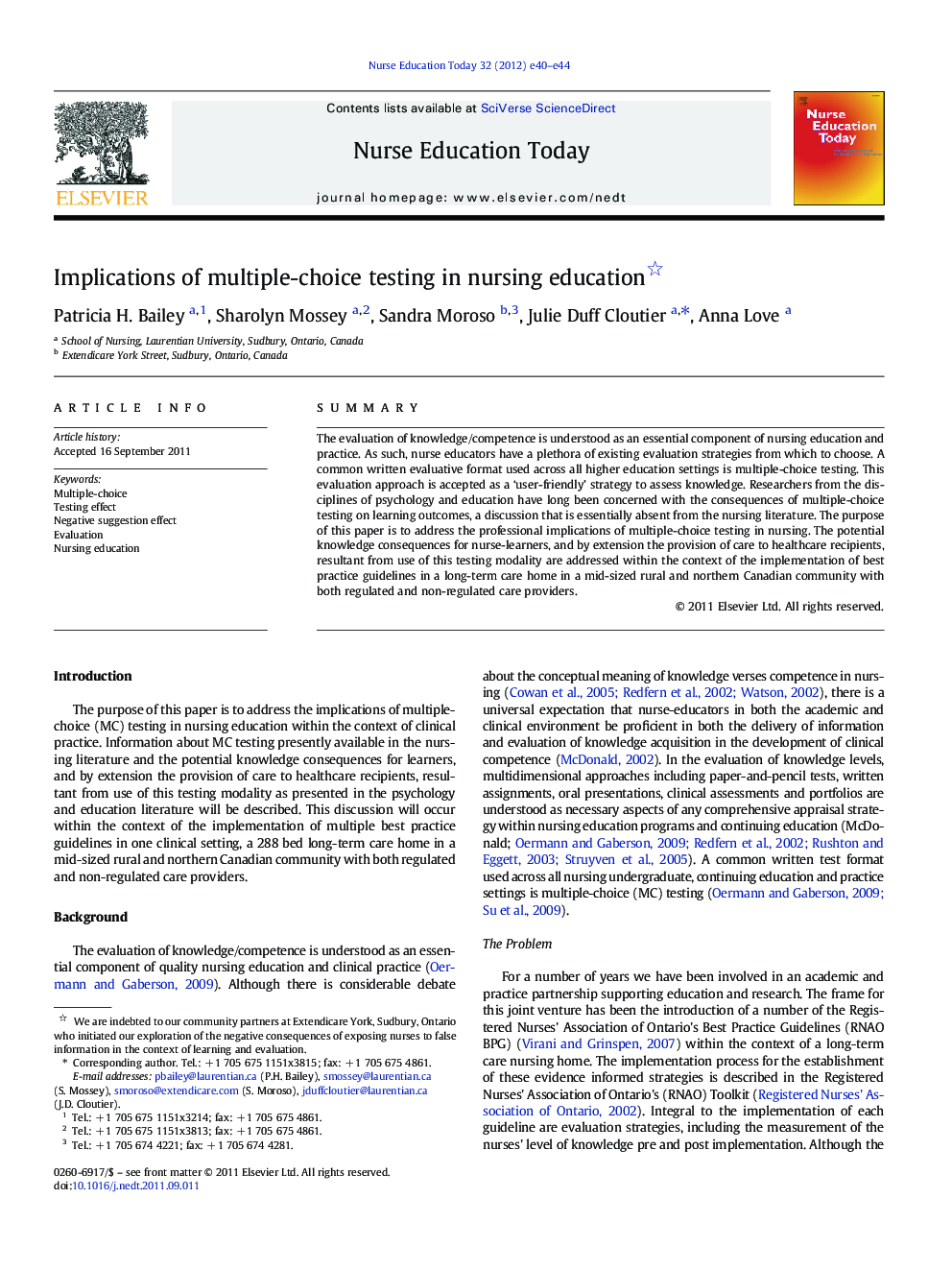| Article ID | Journal | Published Year | Pages | File Type |
|---|---|---|---|---|
| 368569 | Nurse Education Today | 2012 | 5 Pages |
SummaryThe evaluation of knowledge/competence is understood as an essential component of nursing education and practice. As such, nurse educators have a plethora of existing evaluation strategies from which to choose. A common written evaluative format used across all higher education settings is multiple-choice testing. This evaluation approach is accepted as a ‘user-friendly’ strategy to assess knowledge. Researchers from the disciplines of psychology and education have long been concerned with the consequences of multiple-choice testing on learning outcomes, a discussion that is essentially absent from the nursing literature. The purpose of this paper is to address the professional implications of multiple-choice testing in nursing. The potential knowledge consequences for nurse-learners, and by extension the provision of care to healthcare recipients, resultant from use of this testing modality are addressed within the context of the implementation of best practice guidelines in a long-term care home in a mid-sized rural and northern Canadian community with both regulated and non-regulated care providers.
